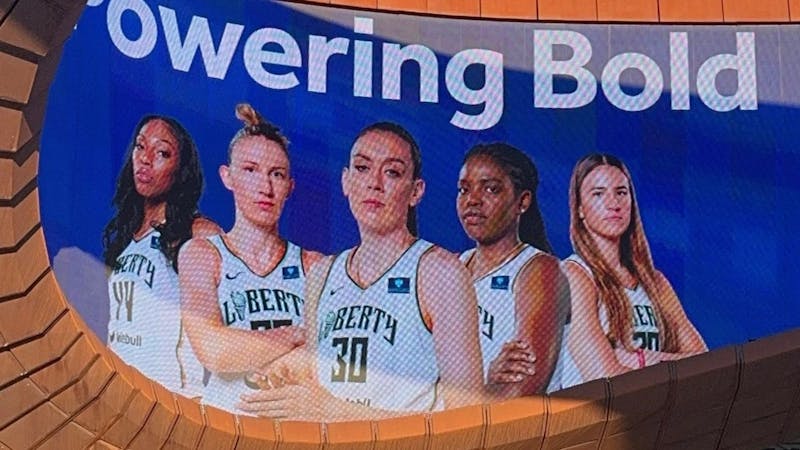Science
WNBA Faces Crucial Negotiations Amid Rising Player Discontent

The WNBA is at a pivotal crossroads as players push for better compensation and working conditions during ongoing negotiations for a new Collective Bargaining Agreement (CBA). Following significant growth in viewership and attendance, players are demanding their salaries reflect the league’s financial success. If negotiations do not yield satisfactory results, the league could face a work stoppage, either through a lockout or a players’ strike.
The current CBA, established in 2020, was intended to last until 2027. However, players opted out, citing their compensation as insufficient compared to the league’s rapid growth. This decision highlights a growing discontent among players, who believe their share of league revenue does not adequately reflect their contributions to its success. According to Nneka Ogwumike, president of the Women’s National Basketball Players Association, “The players are still adamant that we get a percentage of revenue that grows with the business.”
Despite the WNBA’s surge in popularity, with players like Caitlin Clark, Angel Reese, and Paige Bueckers drawing attention, players currently receive only about 9% of the league’s income, with salaries accounting for less than 7% of revenue. In stark contrast, NBA players enjoy approximately 50% of basketball-related income, underscoring the disparity in compensation structures between the leagues.
In addition to salary concerns, players are advocating for improved working conditions, including charter travel and enhanced safety measures. Tensions have escalated within the league, particularly regarding officiating standards and leadership accountability. Napheesa Collier, a key player for the Minnesota Lynx and vice-president of the players’ association, has been vocal about these issues. During the 2025 All-Star Game, she organized a demonstration by having players wear shirts stating, “Pay Us What You Owe Us,” showcasing their frustrations with league management.
Collier’s discontent reached new heights following a serious ankle injury she sustained during the 2025 WNBA semifinals. Her head coach, Cheryl Reeve, was ejected and later suspended for expressing grievances over officiating inconsistencies. Frustrated with the league’s leadership, Collier publicly criticized Commissioner Cathy Engelbert, stating, “We have the best players in the world. We have the best fans in the world. But right now, we have the worst leadership in the world.”
Collier further revealed troubling remarks from Engelbert regarding officiating, where the commissioner allegedly suggested that “only the losers complain about the refs.” Engelbert responded to these claims by denying any wrongdoing and asserting that she does not intend to resign. The fallout from these comments saw Engelbert booed during a trophy presentation for the Las Vegas Aces, highlighting a shift in public sentiment against her leadership.
Support for Collier’s statements has been widespread among players and coaches alike. A’ja Wilson, the league MVP, expressed her disapproval of Engelbert’s comments, emphasizing the need for strong representation. Others voiced their support on social media, with Angel Reese posting her approval of Collier’s assertiveness.
As the WNBA navigates these critical negotiations, the stakes are high. The league’s future hinges on its ability to address player concerns regarding compensation and working conditions, which are essential for long-term sustainability. While discussions may focus on salary caps and free agency, they also touch upon the fundamental respect players seek for their contributions to the sport.
This moment represents more than just a contractual negotiation; it reflects a broader movement for equity and recognition in women’s sports. The WNBA stands at a defining moment, where the choices made in these negotiations will impact not only the players on the court today but also inspire future generations of young athletes. As Collier aptly stated, “Sustainability without accountability is not sustainable.” The league must acknowledge its players, who continue to challenge the status quo and redefine the future of women’s basketball.
-

 World2 weeks ago
World2 weeks agoMass Production of F-35 Fighter Jet Drives Down Costs
-

 World1 week ago
World1 week agoGlobal Air Forces Ranked by Annual Defense Budgets in 2025
-

 Top Stories2 weeks ago
Top Stories2 weeks agoDirecTV to Launch AI-Driven Ads with User Likenesses in 2026
-

 Top Stories1 week ago
Top Stories1 week agoNew ‘Star Trek: Voyager’ Game Demo Released, Players Test Limits
-

 Science2 weeks ago
Science2 weeks agoTime Crystals Revolutionize Quantum Computing Potential
-

 Lifestyle1 week ago
Lifestyle1 week agoLia Thomas Honored with ‘Voice of Inspiration’ Award at Dodgers Event
-

 Entertainment1 week ago
Entertainment1 week agoFreeport Art Gallery Transforms Waste into Creative Masterpieces
-

 Lifestyle1 week ago
Lifestyle1 week agoDiscover Reese Witherspoon’s Chic Dining Room Style for Under $25
-

 World1 week ago
World1 week agoElectrification Challenges Demand Advanced Multiphysics Modeling
-

 Health1 week ago
Health1 week agoGavin Newsom Critiques Trump’s Health and National Guard Plans
-

 Entertainment1 week ago
Entertainment1 week agoFast & Furious Coaster Hits the Track at Universal Studios
-

 Health1 week ago
Health1 week agoResearchers Uncover New Insights into Cancer Mortality Causes






